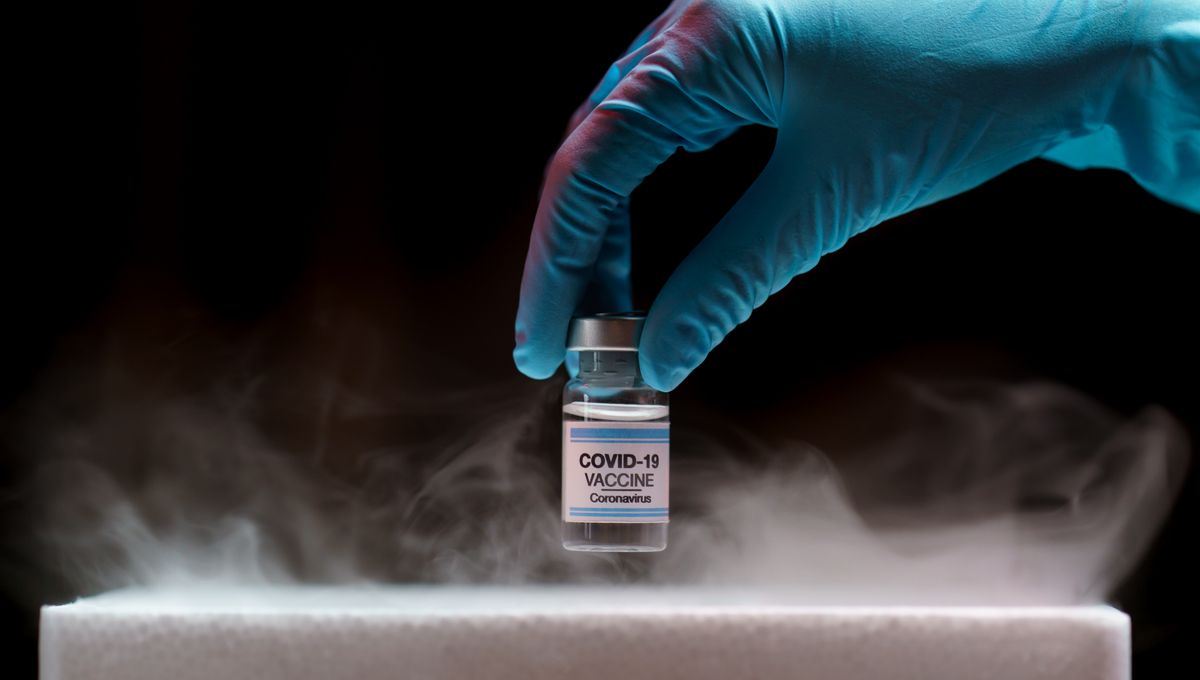
A new discovery about the Nobel Prize-winning mRNA technology behind some of the most widely used COVID-19 vaccines has led scientists to look again at the vaccines’ design. By making a small tweak, the study team hopes to improve future mRNA therapeutics – but the announcement has left some feeling concerned about the reports of “off-target effects”. We dive into what the new study actually found, and what it means for those of us in the Pfizer or Moderna clubs.
mRNA vaccines
It’s important to remember that while mRNA vaccines are a comparatively new approach, all of the vaccines for COVID-19 were thoroughly tested for safety and efficacy before being brought to the general population. The World Health Organization (WHO) is clear that these vaccines “have saved millions of lives” and offer “strong protection against serious illness, hospitalization and death.” A vaccine is still your best defense against severe infection as new variants of the virus emerge.
But it’s understandable that with such new technology, some people had concerns at first. Some of these worries can be easily allayed, such as the conspiracy theory that mRNA vaccines can alter our DNA, which is provably false. Other reported side-effects, such as an impact on the menstrual cycle, and a small number of cases of vaccine-related myocarditis (heart inflammation), particularly in young males, do now have evidence to back them up. However, the vital message is that the benefits of COVID-19 vaccination still clearly outweigh the risks.
The latest study
A new study builds on previous advances by identifying a chemical modification present in some mRNA molecules included in these vaccines that can cause the mRNA sequence to “slip” while it is being decoded in the cell.
The researchers, led by a team at the MRC Toxicology Unit at the University of Cambridge, found that the presence of the modification – called N1-methylpseudouridine – caused an unintended immune response in around one-third of 21 vaccinated patients included in the study.
“Some of the molecules within these types of vaccines have been modified to make them more durable. This is to prevent our immune systems from destroying the vaccines before they have had time to stimulate an immune response to the coronavirus,” explained Professor Neil Mabbott, an immunology expert from the University of Edinburgh who was not directly involved in the study.
“However, in this study the authors show that these modifications can sometimes cause the cell to misread the vaccine’s messenger RNA, by a process known as frameshift. When this happens, it can lead to abnormal versions of the coronavirus spike protein being made.”
By correcting the sequences that are most prone to these chemical errors, the team was able to effectively redesign an mRNA vaccine that produced only the intended protein, and thus the desired immune response. The research has increased our understanding of how these vaccines work, and will help ensure that future uses of this technology for other diseases aren’t hampered by this same issue.
What do the findings mean?
The first thing to clarify is that, while it is theoretically possible that an unintended or “off-target” immune response could be harmful, in this case, it caused no ill effects for these patients. Nothing found in this study provides any reason to doubt the extensive safety data for the mRNA COVID-19 vaccines, nor should there be any cause for concern for people who have already received a Pfizer or Moderna vaccine.
“It is important to say that there is no evidence at all that there have been adverse outcomes from the mRNA vaccines that this mechanism would be involved in,” commented Professor Sheena Cruickshank, an immunologist at the University of Manchester who was not directly involved in the study. “Nor did the paper look at patient antibody responses following mRNA vaccination. Thus, it is unclear that this potential mechanism is having any impact in the current vaccination efficacy or safety.”
“Nonetheless this is an important study that enhances what we know and how we use the mRNA vaccine platform.”
Even though it’s true that vaccines, like any medical treatment, cause side effects in some people, the experts say that right now, there’s no reason to think that any side effects were a result of this frameshift problem.
“There is no evidence to suggest that the findings in this paper relate to such events [side-effects]; this will, naturally, have to be confirmed beyond any doubt going forwards,” said Professor Stephen Griffin, a professor of cancer virology at the University of Leeds, who was not part of the study team.
In short, the study is more about how we can optimize mRNA technology to continue to develop new, game-changing vaccines of the future, rather than identifying any serious issues with the current vaccines.
“We need to ensure that mRNA vaccines of the future are as reliable. Our demonstration of ‘slip-resistant’ mRNAs is a vital contribution to future safety of this medicine platform,” explained joint senior author Dr James Thaventhiran in a statement.
Joint senior author Professor Anne Willis added, “These new therapeutics hold much promise for the treatment of a wide range of diseases. As billions of pounds flow into the next set of mRNA treatments, it is essential that these therapeutics are designed to be free from unintended side-effects.”
The study is published in the journal Nature.
All “explainer” articles are confirmed by fact checkers to be correct at time of publishing. Text, images, and links may be edited, removed, or added to at a later date to keep information current.
The content of this article is not intended to be a substitute for professional medical advice, diagnosis, or treatment. Always seek the advice of qualified health providers with questions you may have regarding medical conditions.
Source Link: Why Are People Talking About A Redesign Of The COVID-19 Vaccines?